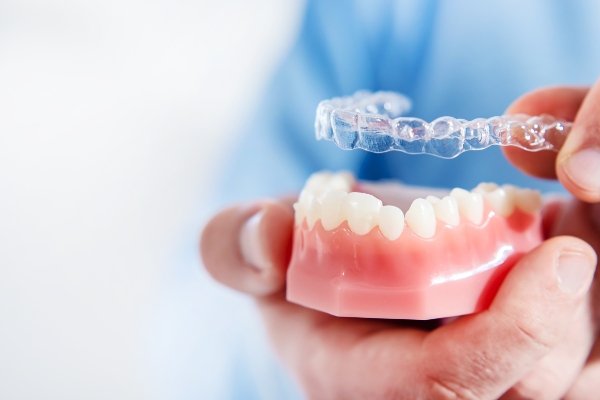Preventive Procedures offered by a Top Pediatric Dentist

Children and adults alike benefit from regular dental care. However, children develop habits that might be hard to change as they become older. So they should make it a point to practice good oral care habits, part of which is preventative dentistry from a top pediatric dentist. When parents visit the dentist for preventive dentistry work, what often follows is a discussion of the importance of routine dental care for children and the steps you may take to start doing it. Get your kids into the habit of regular preventative dental treatment now, while it is still early. When it comes to dental care, prevention is key.
Preventive dental services
Preventive care services provided by a top pediatric dentist include the following:
Dental cleaning
In-office dental prophylaxis, or cleaning, entails removing hardened, bacterial plaque deposits composed of mineralized plaque accumulation, also known as calculus. Scaling and polishing is another name for this process. A dental prophylaxis is recommended twice yearly for the "normal" healthy youngster to preserve oral health and avoid dental problems such as tooth cavities.
The dental hygienist will carefully scrape away tartar and calculus during a dental cleaning. In a procedure known as "scaling," the dentist removes dental tartar by scraping it off the teeth using specialized instruments. When the tartar is gone, the teeth are polished carefully. This procedure can make children feel more confident showing their teeth in public and minimizes the likelihood that they may develop foul breath.
Most youngsters with average dental health only require a dental cleaning once every six months, and the procedure should not cause discomfort. However, a top pediatric dentist may suggest more regular cleanings to restore a child's gum to health and control the spread of gum disease. If the child's gum disease is severe, the dentist may require a more intensive cleaning; they may do this using a local anesthetic or another kind of sedation to ensure comfort.
Dental sealants
Dental sealants protect the flat chewing surfaces of the rear teeth to prevent tooth decay. Dental sealants, also known as fissure sealants, are plastic compounds applied to the teeth and immediately harden. The material is practically undetectable and thin enough not to affect the bite.
Dental sealants have a simple and fast application method. The procedure requires a single visit. First, the dentist will apply etching fluid to the teeth that require sealants. The etching procedure ensures a stronger connection between the tooth and the sealant. Before applying the sealant, they clean the etching solution and allow the tooth to dry. The dentist will either let the dental sealant set on its own in a few minutes or utilize a special light to speed up the process. After the procedure, the child can eat and brush their teeth as usual, and there is no need to delay feedings.
Fluoride treatment
Fluoride treatment helps to lessen tooth sensitivity and strengthen the enamel. The dentist will apply a light-yellow gel to the teeth using a gentle paintbrush. The gel builds up fast and has a nice taste. In addition, the use of fluoride varnish as part of a comprehensive preventive dental care program can significantly reduce the prevalence of cavities. For patients aged two to 18, fluoride may be administered by the dentist up to four times annually. The application process is swift and painless.
If a child has ever been hospitalized for asthma or other allergies, the dentist will need to know about it. Otherwise, fluoride varnish is safe for most kids. If the kid develops mouth sores on the day of application, they cannot get the fluoride varnish treatment. Patients should not take any fluoride pills or drops the day before the application and two days after. After applying fluoride varnish to the child's teeth, leave it on for the remainder of the day and overnight for best results.
Advice on proper dental care
When a child's first teeth emerge, parents should begin gently brushing them twice a day. Disease-causing bacteria grow in the dry conditions of the mouth at night; thus, dentists recommend brushing first thing in the morning and right before bed.
Cavities are more likely to form in the spaces between teeth, which you can only reach by flossing. Once the child's teeth start touching, it is time to start flossing. Until around age 10, most kids will need help with flossing.
In conclusion
Preventive dentistry is a branch of dentistry focused on keeping teeth and gums in excellent condition. Good oral hygiene is the result of consistent brushing and flossing, as well as frequent dental checkups. Oral care is an ongoing process that begins in early infancy and continues throughout a person's life. To learn more, book an appointment with a top pediatric dentist today.
Request an appointment here: https://www.orthodonticprecision.com or call Precision Orthodontics & Pediatric Dentistry at (703) 391-8800 for an appointment in our Reston office.
Check out what others are saying about our dental services on Yelp: Pediatric Dentist in Reston, VA.
Recent Posts
Dental care for children often requires unique approaches tailored to their developing dentition and growing independence, and one type of care that they can receive is pediatric dental X-rays. However, parents often wonder whether exposing young children to X-rays is more harmful than helpful, so it is common to have questions about this type of…
A kid friendly dentist has many important jobs in your child’s oral wellness. Aside from cleaning your child’s teeth at semiannual appointments, the dentist will check on jaw and bite issues. As your son or daughter gets older, the dentist will also check on how the permanent teeth are coming in. There are ways the…
Cavity treatment for kids can help children maintain their long-term oral health. Tooth decay in children can lead to discomfort, infection, and long-term dental complications if left untreated. Fortunately, early detection and appropriate pediatric dental care can prevent complications and support healthy oral development as children grow up.Cavities develop when bacteria in the mouth feed…
An emergency pediatric dentist is a parent’s go-to resource when unexpected dental issues arise. From accidents to sudden pain, these dental providers offer specialized care to restore children’s oral health and comfort quickly. Understanding their role and the treatments they offer empowers parents to handle dental emergencies with confidence, ensuring prompt, compassionate care for every…


